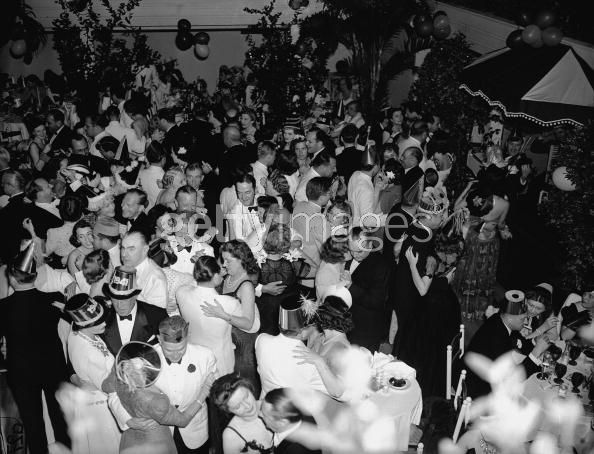Wine makes a man more pleased with himself; I do not say that it makes him more pleasing to others.
– Samuel Johnson
Good Morning, Darlings! You all know how I love a glass of champagne or two. But please allow me to get serious this post. This holiday season if you are hosting a party, it is your responsibility to keep your guests safe and happy. That includes not allowing them to drink and drive. I am ridiculously fortunate to have a number of our party guests living within walking distance, but not all of them are so close.
At our pre-party planning meeting this year, we had a serious discussion with our bartender, Wallace, on the importance of letting us know when he feels someone has had a little too much joy and happiness. We consider him our co-host on this special night and with over 75 people swinging by to party and mingle, I won’t be able to keep my eye on all the activities at once. So we are counting on his experience to help keep everyone safe. The fact that this year’s theme is black tie should keep inhibitions a tad under wraps as well.

I Love A Black Tie Affair!
Some more info that might be helpful to the party host:
Social Host Liability
States with social host liability: Alabama, Alaska, Arizona, Colorado, Connecticut, Florida, Georgia, Idaho, Illinois, Indiana, Iowa, Louisiana, Maine, Massachusetts, Michigan, Minnesota, Mississippi, Montana, Nebraska, Nevada, New Hampshire, New Jersey, New Mexico, New York, North Carolina, North Dakota, Ohio, Oregon, Pennsylvania, Rhode Island, South Carolina, Texas, Utah, Vermont, Washington, Wisconsin and Wyoming.
States with no social host liability: Arkansas, California, Delaware, District of Columbia, Hawaii, Kansas, Kentucky, Maryland, Oklahoma, South Dakota, Tennessee, West Virginia and Virginia.
Source: Insurance Information Institute, as of October 2008
The term “social host” means anyone who hosts a social gathering, including private individuals, employers, and organizations.
In many states the consequences of over-serving alcohol extend to the host. Social hosts can be legally liable if they recklessly encourage a guest to continue drinking when it is clear they are drunk. Most states also place liability on social hosts in situations where alcohol is served to a minor or where the host should have recognized and stopped serving an obviously intoxicated guest.
A social host may be liable for third party property damage and personal injury where the following conditions are met:
1. The social host served alcohol to a person(s)
2. S/he knew or should have known the person(s) were intoxicated, and
3. S/he knew the person(s) would be driving afterwards.
Typically, social host liability is limited to injuries and property damage suffered by third parties. A social host is not generally liable for injuries sustained by the drunken guest. The guest cannot sue the person who served him alcohol because the guest is also negligent. The social host may be liable, however, for injuries sustained by passengers of the guest, unless the jury finds that the passengers were negligent in riding with the guest.
Potential social hosts should check to see if their homeowner’s or business insurance covers third party liquor liability. If not, it may be possible to purchase insurance coverage for special events such as company banquets, holiday celebrations and personal functions such as weddings.
So, my Darlings, lets make sure everyone has a great time. Keep the number of a cab company in your city handy and make up the couch/air mattress/bathtub/guest room if need be.
It will only make your friends love you more than they already do.
xoxo, Patti
PS – GO GATORS!!! SEC CHAMPIONSHIP GAME TOMORROW!!!

Mad props girl!